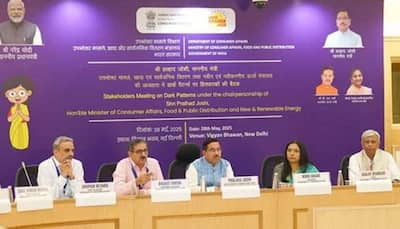Amid the Consumer Affairs Ministry’s move to make people aware of ‘dark patterns’ deployed by apps and e-commerce sites, a formal complaint has been submitted to the Reserve Bank of India highlighting concerns about certain apps allegedly engaging in deceptive auto-debit practices, reported Times Now. The report said that these apps reportedly mislead users by offering trial subscriptions for Rs 1 or Rs 2, without clearly disclosing that initiating the trial will automatically activate an auto-debit ranging from Rs 149 to Rs 699 once the trial period concludes.
The Department of Consumer Affairs, Government of India recently convened a meeting which brought together key representatives from major e-commerce companies, industry associations, Voluntary Consumer Organizations, and National Law Universities for a focused dialogue on eliminating deceptive online practices.
A dark pattern is a design tactic used in websites, apps, or digital interfaces that deliberately manipulate users into making decisions they might not otherwise make like subscribing to a paid plan unknowingly. These patterns are deceptive and often serve the interests of the company rather than the user.
False urgency tricks you into making quick purchases — it’s a dark pattern. Stay smart, verify before you buy! Report violations to the National Consumer Helpline at 1915 or WhatsApp 8800001915.
— Consumer Affairs (@jagograhakjago)
Several well-known Indian platforms, including Kuku, Stage, and Seekho, have come under increasing scrutiny for reportedly using misleading billing methods that take advantage of gaps in digital payment systems — a pattern that poses significant concerns for both users and investors alike, reported CNBC TV18.
Dark patterns, formally recognized as unfair trade practices under the Consumer Protection Act, 2019, include tactics such as false urgency, basket sneaking, bait and switch, drip pricing, and subscription traps. Guidelines to curb these were issued by the Central Consumer Protection Authority (CCPA) in November 2023.
आज के ‘Podcast with Jagriti’ के इस खास एपिसोड में, हम बात करेंगे, ई-कॉमर्स की दुनिया में फैले डार्क पैटर्न्स के जाल के बारे में।
— Consumer Affairs (@jagograhakjago)
Union Minister for Consumer Affairs Pralhad Joshi has expressed concern around dark patterns in digital commerce. The Union Minister emphasised the importance of responsible industry behaviour, adding that the Guidelines on Dark Patterns were the result of intensive consultations with various stakeholders, including leading e-commerce companies and industry associations.
With mutual agreement reached, the Minister urged all companies to now fully comply with the guidelines and integrate them into their internal governance and consumer protection mechanisms. Highlighting recent developments, Joshi noted a significant surge in consumer complaints related to dark patterns on the National Consumer Helpline (NCH). To address this, he issued a clear directive to all major e-commerce companies: conduct regular internal audits to identify and eliminate dark patterns on their platforms.
आखिर क्या है Dark Pattern, जिसे लेकर मचा है बवाल, जानिए कैसे सरेआम काटी जाती है जेब, और आपको पता भी नहीं चलता!
— Zee Business (@ZeeBusiness)
“Companies must not wait for the Central Consumer Protection Authority (CCPA) to intervene. They should proactively recognize and remove these deceptive practices before notices are issued. This is not just regulatory compliance—it’s about building trust with your consumers,” he stated.
He said that the Jagriti App enables consumers to report dark patterns on e-commerce platforms directly to the CCPA and flags suspicious websites, while the Jago Grahak Jago App shields users from malicious platforms and offers real-time safety scores for the e-commerce link which a consumer is visiting. The Union Minister warned of action if companies failed to comply with the law.
Consumer Affairs Secretary Nidhi Khare stated that the CCPA has issued 11 notices related to violations involving dark patterns, along with over 400 notices for broader unfair trade practices. She also mentioned that the focus of regulatory scrutiny will now expand to include the quick-commerce and ride-hailing industries.
The representatives of the major e-commerce companies 1mg.com, AIRBNB, Amazon, Apple, Zepto, Booking.com,Ola Electric, Tata Digital, Adidas India, Samsung, Ikigai Law, Indigo Airlines, Ixigo, MakeMyTrip, Mastercard, Meta, Netmeds, Namma Yatri, PharmEasy, Reliance Retail, Rapido, Shiprocket, Snapdeal, Swiggy, Thomas Cook, Uber, Whatsapp, Yatra, Zomato & Blinkit, Flipkart, Google, Justdial, ONDC, and Paytm were present during the meeting. Further, the major industry associations CAIT, CCI, FICCI, NASSCOM, PHDCCI, and Retailers Association of India along with Voluntary Consumer Organisations and National Law Universities, attended the meeting.
Stay informed on all the , real-time updates, and follow all the important headlines in and on Zee News.








